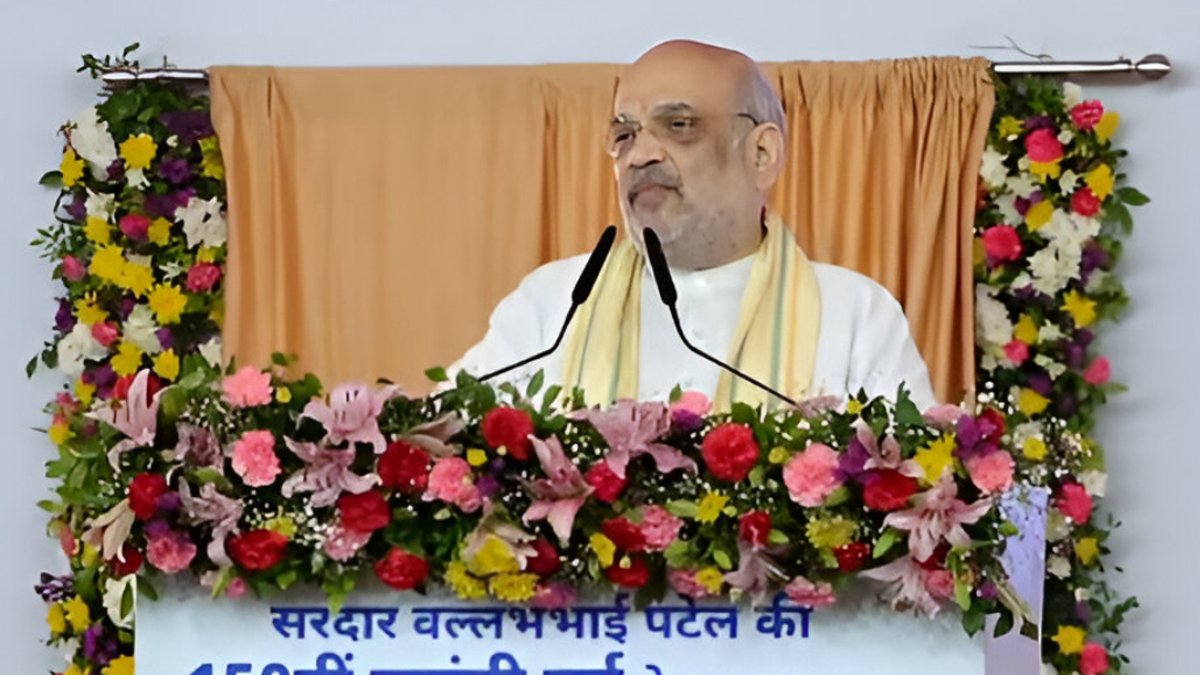Now Reading: Anand, Gujarat: A New Chapter in India’s Cooperative Movement as Amit Shah Launches Groundbreaking Initiatives
-
01
Anand, Gujarat: A New Chapter in India’s Cooperative Movement as Amit Shah Launches Groundbreaking Initiatives
Anand, Gujarat: A New Chapter in India’s Cooperative Movement as Amit Shah Launches Groundbreaking Initiatives

In a significant stride towards bolstering India’s cooperative sector, Union Home and Cooperation Minister Amit Shah, on Sunday, July 6, 2025, inaugurated the “Sardar Patel Cooperative Dairy Federation Limited” and the “Kutch District Salt Cooperative Society” in Anand, Gujarat. These launches mark a pivotal moment, aiming to empower millions of farmers and salt producers across the nation by replicating the successful “Amul model” of cooperative growth.
The event, held in Anand, a city synonymous with India’s cooperative dairy movement, also coincided with the completion of four years of the Ministry of Cooperation and the 150th birth anniversary year of Sardar Vallabhbhai Patel, the architect of India’s cooperative vision.
Sardar Patel Cooperative Dairy Federation: A Pan-India Dairy Revolution
The newly formed Sardar Patel Cooperative Dairy Federation Limited is envisioned as a multi-state cooperative body that will work to establish a complete cycle of organized market, input services, fair purchase of milk, price differential compensation, and a circular economy within the dairy sector. Modeled on the resounding success of Amul, this federation aims to bring together hitherto unorganized dairy farmers from across 20 states, who collectively contribute nearly 100 lakh liters of milk per day.
This initiative is a crucial step towards “White Revolution 2.0,” a government vision to expand and strengthen the cooperative dairy network nationwide. By providing a structured platform, the federation seeks to ensure fair prices for milk producers, enhance their income, and integrate them into a robust cooperative ecosystem. Gujarat, already a powerhouse in dairy with 18 milk unions under GCMMF (Amul), is poised to lead this national expansion, offering its expertise and proven model to benefit dairy farmers in other states.
Kutch District Salt Cooperative Society: Empowering the ‘Agariyas’
Beyond dairy, Minister Shah also unveiled a groundbreaking initiative for the salt sector: the Kutch District Salt Cooperative Society. This marks the first cooperative endeavor in salt production in Gujarat, a state that accounts for over 70% of India’s salt output, with a significant portion coming from the Agariyas (traditional salt workers) of the Little Rann of Kutch.
For generations, salt workers have often faced exploitation due to fragmented markets and lack of organized representation. This new cooperative society aims to address these challenges by ensuring that the profits from salt production directly benefit the salt makers themselves. It is expected to transform into a powerful cooperative movement, much like Amul did for milk producers, providing fair returns and improving the livelihoods of thousands of Agariyas.
A Holistic Approach to Cooperative Growth
During his address, Amit Shah underscored the Modi government’s commitment to revitalizing the cooperative sector, emphasizing a “Five P’s” model: People, PACS (Primary Agricultural Credit Societies), Platform, Policy, and Prosperity. He highlighted that over 60 initiatives have been undertaken by the Ministry of Cooperation in its four years, aiming to create a transparent, technology-driven, and member-centric cooperative ecosystem.
He also virtually inaugurated significant expansions of Amul’s facilities, including a state-of-the-art cheese plant in Khatraj and an expanded chocolate plant in Mogar, collectively representing an investment of ₹365 crore. These expansions are set to double production capacity and diversify value-added dairy products. Additionally, a Ready-to-Use Culture (RUC) Plant of NDDB, aimed at reducing import dependence in dairy inputs, and the new headquarters building of the National Cooperative Dairy Federation of India (NCDFI) were also inaugurated.
The Union Minister stressed that the cooperative movement, deeply rooted in India’s Vedic traditions of working and sharing together, is no longer confined to rural margins but is an integral part of national economic growth. With these new federations and ongoing reforms, the government aims to ensure that the prosperity generated by cooperatives reaches every individual member, fostering inclusive growth and self-reliance across various sectors.







